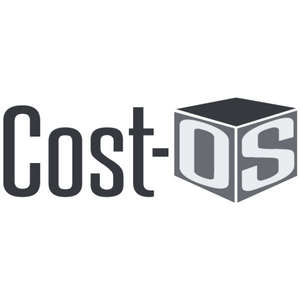How to Spot a Bad Software Vendor
Everyone has met a pushy salesperson in their day.
 Danny Devito as a sleazy car salesman in the movie "Matilda".
Danny Devito as a sleazy car salesman in the movie "Matilda".Think of furniture stores, car salesmen, and even door-to-door salesmen—although thankfully that last one is on its way out. Words that might come to mind for these lovely people are obnoxious, forceful, presumptuous, and overbearing. We realize everyone has a job to do but there is a right way to go about things. How do you distinguish the ones you should do business with versus the unworthy vendors?
They don’t value your time.
Can you think of a bigger turn-off? They email you constantly without any real purpose. Personally, if I am going to get an email weekly from someone AND they expect me to open it, it better contain some value to me. The “value” can’t be a follow-up from the last unopened email either (face palm emoji). Let’s say you have set a demo with what you believe is a worthy vendor, it’s now time to see if they respect your scheduled time. Ideally, you want to show up to a product demo and the other company is on-time or early and already sharing their screen. It is also appealing when the vendor verifies that this is still a good time to meet. This gives you a chance to say you have a hard stop in 30 minutes or if you will be missing one of your teammates and you need to reschedule.
The clearest way a vendor can show they value your time is by doing their homework. Do they have a real-world example of how their product can help solve your pain? They probably won’t be able to show you exactly how their product will work for your company in the first demo, but they should be able to give you benefits that customers similar to you have already seen. When a vendor tailors a demo to you, you feel valued and know they don’t want to waste your time.
Would rather talk about their product, not you.
It’s more helpful for a vendor to listen in a demonstration rather than throw a product pitch at you the entire time. There is a reason why you reached out and wanted to take time out of your day to see this demonstration. It’s the vendor’s job to figure out why as quickly as possible. The best way a vendor can do this? Ask! We’ve heard a lot of these over the years. Which one is familiar to you?
- What are you hoping to get from this meeting today?
- Why did you agree to this meeting?
- What makes you interested in ______________?
- Why are you wanting a change?
The list goes on but you get the point. Once a vendor can figure out the pain of how you do things now and why you are interested in switching, they can apply it at a very personal level to the prospect. Once you think you’ve shared your pain with the vendor, the really good ones dig a little deeper.
If you have to repeat yourself during a demonstration, chances are the vendor is thinking about their next move instead of listening to you (the most important person in the room). You want the vendor’s presentation to be collaborative. Are they asking for your feedback as they go? Do they even care if this is of interest to you? Something a worthy vendor will do is remember the pain you shared in the first conversation four calls down the road. WOW, they really were listening!?
Doesn’t take no for an answer.
Newsflash…not everyone is going to want a certain product. Not everyone needs a certain product. You want a vendor to respect your "no". Sure maybe they can dig into it and see if it’s really a no or just a not right now but they won’t keep trying to push something once you’ve said "no". If they’ve established a rapport with you they can even ask for feedback as to why this isn’t going to work for your company. In the end, it helps both parties out. You don’t want your "no" to be followed up with a different product pitch or an email the day after of how they really think you should reconsider. On the other side of that, a good vendor can manage sales objections: Is there a certain part of the product you think won’t work for you, and can that be resolved?
The absolute worst reaction a vendor can have to your “no” is to go around you. It does happen though. They are too determined to get that sale rather than respect your position at the company. Talk about a surefire way to not gain that new prospect…
Good software vendors:
- Respect your time
- Listen more than talk
- Understand and accept objections
This list is about who is worth your time! If you feel forced into purchasing or even agreeing to a demonstration, your boundaries have already been crossed.

-1.png?width=112&height=112&name=image%20(4)-1.png)

















